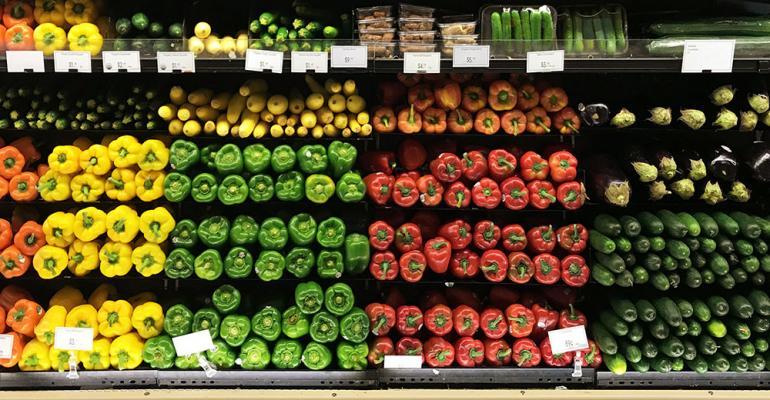Produce association plans series of virtual meetings to connect members, share ideas and concerns about business during and after coronavirus pandemic.
March 26, 2020

Produce Marketing Association convened its members from across the global produce and floral communities to discuss the pandemic’s impact on their businesses during Wednesday’s virtual town hall.
With more than 800 members from 21 countries, the meeting focused on how the global food and floral supply chain is working together to address this “new normal.”
This was the first in a series of virtual town halls to provide the most updated information to the industry and an opportunity for members to connect across the entire supply chain. PMA will continue to share learnings from the virtual town halls for all industry members.
On April 1, the virtual town hall will focus on the challenges in the retail industry.
The PMA website also offers a variety of resources for non-members in grocery/retail, foodservice, grower/shippers, supply chain/transportation and floral.
The March 25 virtual town hall featured perspectives from Cathy Burns, PMA's CEO; Max Teplitski, its chief science officer; and Hunt Shipman, principal and director of Cornerstone Government Affairs.
Their remarks focused on how the industry can educate consumers on critical topics like the health and wellness benefits of fresh fruit, vegetables and floral; safe handling of fresh produce; and regulatory updates regarding COVID-19.
“Today’s virtual town hall brought together members from across the global produce and floral communities to provide connections and information to help navigate this unprecedented situation,” Burns said. “As we adjust to our new reality, we know the role we play in making our world better by providing consumers with fresh fruits, vegetables, flowers, and—and we’ll be reinforcing this role through efforts to reassure shoppers that fresh produce and floral products are available and safe during this crisis.”
In a series of virtual roundtables, discussion focused around topics directly impacting members and their businesses. Each of these group discussions was led by a PMA expert, joined by a global industry leader, to provide on-the-ground insights around global trade, supply chain, foodservice, retail, floral and growers/shippers.
“Listening to the opening comments from Cathy, Max and Hunt, and then hearing my colleagues and friends in the floral business openly talk about their challenges they’re facing but also having the platform to learn from one another really underscored to me how this association can forge connections and stronger communities,” said PMA Chairman Joe Don Zetzsche, director of Blooms Flower Shops for H-E-B. “The town hall modeled our values of community, character and courage and emphasized the power and value of PMA membership to help guide us through these times.”
PMA will continue to provide resources capturing the conversations from the virtual town hall meeting, but some highlights are listed here.
Patterns in global trade
With members from Mexico, Singapore, the European Union, Colombia, Peru, the United States and China providing insights, the discussion focused on what is becoming a pattern from country to country as the pandemic progresses: an initial rise in retail from panic buying—making it difficult to anticipate demand—followed by a stabilizing period during which the largest questions are about trade and logistics.
Supply chain challenges differ
This roundtable highlighted differences between European challenges and what is becoming a challenge in the United States. In Europe, fewer retailers can support e-commerce or online grocery shopping. Additionally, with air freight deeply impacted, maintaining capacity in the supply chain has become a challenge. However, ground transportation has seen fewer problems. In the United States, the main delays are at distribution centers, where products wait to be unloaded, possibly due to facility policies around social distancing among the workforce.
Floral suffers as employees are reassigned
Floral is experiencing unprecedented disruptions during the pandemic. Consumer panic buying is forcing retailers to distribute employees in other parts of the store to meet demand. However, as panic buying subsides, warehouse demand will stabilize this could provide an opportunity for the floral sector to regain its position in the market. Floral and PMA leaders are diving into consumer-facing messaging reminding people of the wellness benefits for floral which is especially important at this time.
Retailers face supply and employment challenges
This group confirmed retail traffic is beginning to stabilize. Members from multiple companies face similar challenges, from a decrease in trucks for produce as demand for other products grows, to employees whose children are out of school dealing with childcare concerns. Most retailers are seeing the same core group of products—including bananas, potatoes, carrots and onions—make up the bulk of purchases.
Foodservice responds with take-out and delivery
As with floral, foodservice has seen a considerable amount of disruption from the operator through the supply chain. Discussions focused on how foodservice is responding to the crisis by offering take-out and delivery, as well as trimming down menus. Members also discussed how they collaborated to save fresh product and jobs, including distributing directly to retailers who reduced produce deliveries to account for other high-demand items. Members remain optimistic but are concerned that the supply chain will be able to meet restaurants’ needs in a post-COVID-19 world.
Growers and shippers focus on safely maintaining labor
Industry leaders from the U.S., South Africa and Spain discussed the uncertainties facing growers and shippers globally. While the supply chain is stable, a shared major concern is maintaining labor in a way that is safe for employees and employers. They pointed to PMA’s resources that guide growers and shippers on supporting a safe work environment.
Source: Produce Marketing Association
You May Also Like


